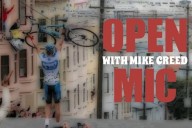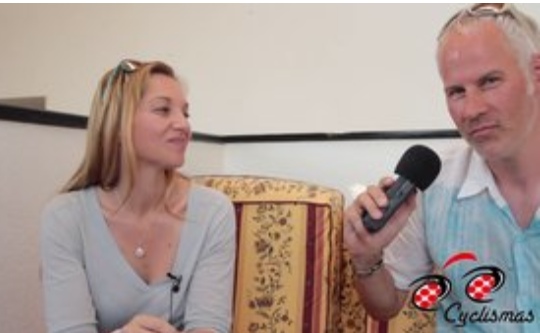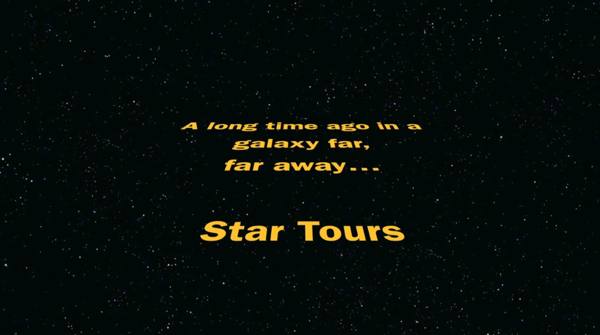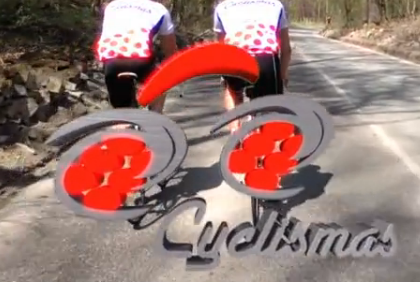James Stout Interview: Postscript
When William Thacker, the publisher for Cyclismas, first contacted me about the James Stout interview, I hesitated, because who the hell is this Stout kid? Who ever heard of him? What’s he ever done? How much information will I possibly be able to find?
But looking into it a little I found the Stout / TT1 / Phil Southerland story to be intriguing, so I agreed.
I was told that James was ready for this, that he wanted to do it.
Overall, that was true. But James had bouts of uncertainty based on his legal situation.
There have been more gopher holes and protruding roots in the trail of this interview than ever should have been.
James’ issues with Phil Southerland and Team Type 1 first sidetracked and then nearly derailed publication [of the interview on Cyclismas.com].
There were times when I thought very unkind things about James Stout; “flake” and “prima donna” were some of the kinder words that ran through my head when he crossed my mind.
But Thacker, calm, resourceful, peace-making genius that he is, kept things running on track each time.
Much of my ill will and negative thoughts resurfaced and then re-submerged several times before everything was sorted out and publication was a go.
When we started talking I discovered that James is an excellent and interesting conversationalist. Talking with him was a truly interesting and rewarding experience. Before I go on let me describe James to you: James is at once mature and immature; humble and arrogant; naïve and wise; grounded and flaky; stoic and a drama queen; tough and a sniveling bitch.
The interview took place via Skype connected to cell phone, America to Spain. The connection was not ideal. At times it was godawful atrocious.While transcribing my Vaughters interview I might listen to a passage two or three times to make sure I understood something. Between the fuzzy connection and James’ accent I was listening to some snippets a dozen times or more, slowing them down, speeding them up, sometimes having to give up on them entirely and just leave them out.
For instance, during Part 3 James gave me the names of four friends. That snippet of recording took maybe 20 seconds to speak. But it took me nearly 10 minutes to piece together using a combination of what I already knew about James, what it kind of sounded like he said, and web searches, to get it all down correctly.
The digital noise break up was at its worst during the final ten minutes. During that stretch there were about five minutes worth of material that had to be left “on the cutting room floor” because the noise made them completely unintelligible. That was frustrating, because James was sharing some really interesting personal stuff about school and what’s going on with him currently.
The one thing that made this interview both more difficult and more rewarding was that when James speaks, he is very “stream of consciousness.” I’d sent James an outline containing the topics for each part of the interview. We’d start talking about one thing and he’d end up covering all or some of another topic. From his rambling I’d have more questions, questions that were not in my script. So, I ended up with more material than I’d otherwise have gotten, but I also did a lot more editing and reorganizing, so that things would make the most sense and flow better.
For instance, the passage about the doctor who told James to play chess: that was covered early in the interview, then came up again with a lot more passion and at greater length much later. But it was stuck at the end of something it wasn’t really related to. So, the second reference had to be moved up to beneath the first. I didn’t change any context or meaning, but without that change things would have been more jerky and repetitive.
There were a few things that surprised me. First, how this behavior by Southerland seems to be a fairly broad problem, to the point that I have to call it a pattern of abuse. That continues to be a surprise for me, because I really liked the notion of TT1 and I’d read some nice things about Southerland. It made it hard, at first, to take James and Willem Van den Eynde’s claims seriously. Second, how James really did not at all come across as angry and bitter and trying to cause trouble. Third, how the others that we know of seem not only reluctant to talk, but outright fearful. Finally, what a flaming, arrogant, prima donna, pain in the ass James can be at times, but at others seeming so humble, pleasant, and generally calm and together in the face of adversity.
There is another significant difference between this interview and the interviews I did with Bill Strickland and Jonathan Vaughters. In those previous interviews I went in knowing or at least assuming quite a bit about the subject. I had an idea before things even got rolling about what I wanted to ask and where I wanted things to lead. I had some nugget of “truth” that I wanted to obtain.
With the James Stout interview I went in having never heard of James before and even after doing my research I had no idea of what to expect. I didn’t know what the “nugget of truth” was going to be, I had no real aiming point beyond attaining James’ version of the story. When I finished those previous interviews I had a feeling of accomplishment, of completions, to one degree or another. With this one, not so much. It feels like there’s more out there, more to know, more to learn. Not so much that I missed something or that James withheld something, but just that all the pieces haven’t come together yet. Will they eventually? Will the story eventually feel like it’s complete? I really don’t know right now. But, for all his flaws and for all the hassle and high blood pressure James has caused me, I believe that he is truthful and that his account of what’s happened to him is accurate within his understanding of it.














No Comments